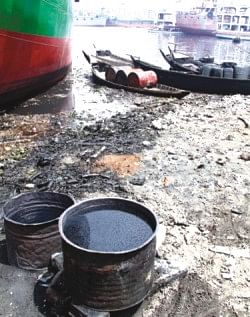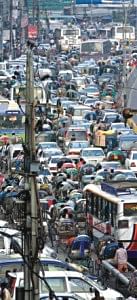Letters
Driving School In Every District
Bangladesh is a country with a large population of people living below the poverty line. The democratically elected government has a special responsibility to help the poor to enhance their financial capacity. Different types of measures can be taken to enhance the earnings of the poor. One such measure is setting up and operating a driving school in every district town, and city. Bangladesh has 64 district towns where 64 driving schools can be established. A few thousand trained drivers from every region of the country can graduate from these schools every year. This will contribute to the safe transport movement and reduce fatal accidents on roads and highways in the country. A large number of them will get a chance to go abroad and earn the much-needed foreign currency. They will be able to improve the living conditions of their families.
Huge amounts of money will not be required to set up and operate these driving schools.
A driving school can be provided with two mini buses, two trucks and two double-cabin pick up vans initially to impart basic driving skills to young people. Collaboration of Traffic Police, Bangladesh Road Transport Authority, Technical
Education Board and Manpower Bureau is necessary to set up and run at least one driving school in each district town in Bangladesh. About Tk200 crores may be required to establish 64 driving schools with infrastructure the schools. This is not a large amount for our country. Lives will be saved by reducing the number of annual fatal accidents in the country. Money will also come in from foreign countries when these drivers find employment and send foreign currency back to their families. The elected government should do something to assist the poor as soon as possible. I urge the government to consider this idea. It may bring about positive changes in the future.
Md Ashraf Hossain
Central Bashabo,
Dhaka
River Pollution
 It is common knowledge that the condition of the Buriganga is deteriorating .The Buriganga is one of the oldest rivers and no doubt at one point was the only source of water for all Dhaka city dwellers. Now the river is on its last breath .The untreated decomposition of sewage and the harmful chemicals from industries have aggravated the damage making the conditions deplorable. Almost half of the aquatic life is extinct now and the rest are endangered as the condition of the river deteriorates everyday. The citizens of the capital are supplied with water from underground but this water supply is very limited, causing people to suffer from inadequate supplies in summer. The only solution is to adopt sewage treating methods and stop the disposing of chemicals directly into the river. This will not only save the aquatic life but will also be healthier for us as polluted rivers are the breeding ground for diseases. Treating sewage will also provide fertilizers (by-products), which can be used in agricultural fields. Methane gas is a byproduct from sewage treatment, which can easily eradicate the necessity of natural gas. Action has to be taken now or it will be too late to save the river.
It is common knowledge that the condition of the Buriganga is deteriorating .The Buriganga is one of the oldest rivers and no doubt at one point was the only source of water for all Dhaka city dwellers. Now the river is on its last breath .The untreated decomposition of sewage and the harmful chemicals from industries have aggravated the damage making the conditions deplorable. Almost half of the aquatic life is extinct now and the rest are endangered as the condition of the river deteriorates everyday. The citizens of the capital are supplied with water from underground but this water supply is very limited, causing people to suffer from inadequate supplies in summer. The only solution is to adopt sewage treating methods and stop the disposing of chemicals directly into the river. This will not only save the aquatic life but will also be healthier for us as polluted rivers are the breeding ground for diseases. Treating sewage will also provide fertilizers (by-products), which can be used in agricultural fields. Methane gas is a byproduct from sewage treatment, which can easily eradicate the necessity of natural gas. Action has to be taken now or it will be too late to save the river.
Md Mahbubur Rahman
European Standard School, Dhaka
Saving the Environment
Recently, polyethenes have been banned to save the environment and without a doubt this is a praiseworthy action taken by the government. But the need for polyethenes is also vital and hence there may be a downside to this decision as well. Developed countries use polyethenes on a daily basis and at the same time manage to maintain a clean and hygienic environment. There are large trashcans placed everywhere in public places and stern measures are taken against those who litter. This not only maintains cleanliness, but prevents diseases from spreading. The polymers are also used effectively with almost no harm to the environment. Bangladesh desperately needs to clean up its streets and must learn from these developed countries and adopt their ways of maintaining cleanliness. We need to discipline ourselves and dispose of the polymers carefully.
Sayem Ovince
Old Town, Dhaka
The Traffic Monkey
This letter is prompted by the news in The Daily Star printed on, 16 Sept 2010 in which a Parliamentary Committee has “asked DCC, DMP, BRTA, RAJUK and others” to present their plan to curb traffic jams. I can only gasp and gape in amazement although the Parliamentary Standing Committee has given a worthwhile suggestion.
For three years through 77 letters, I have explicitly detailed how a privileged few have brought forth on this blighted city, their fleets of Gas Guzzling Monstrosities (GGMs) that freely park and ply (often empty) on the pot-holed, narrow and scarce roads, streets and lanes of Dhaka with impunity. Let us reflect on the measures the traffic controllers have taken in recent years with the expenditure of hundreds of crores of public money, all of which have been in vain.
 1. Made some roads one-way and banned rickshaws there.
1. Made some roads one-way and banned rickshaws there.
2. Made some 'white elephant' freeways and banned rickshaws there.
3. Installed CCTV cameras at intersections to nab rickshaws there.
4. Installed automatic traffic lights and banned rickshaws there.
5. Divided Dhaka into zones which have different rickshaw free holidays.
6. Changed timings so small children had to go to school in the dark but not on rickshaws.
7. Changed business timings and banned rickshaws everywhere.
8. Painted fancy lanes on roads for all motorized vehicles but no rickshaws.
9. Now solar panels are required for traffic lights that have still not made their way to Dholai Khal, but none for solar-powered rickshaws.
10. Finally, they closed schools during Ramadan. Do the controllers think mass illiteracy will get the traffic jam monkey off their backs or was it just another futile scheme to appease the GGMs of the privileged few to go about their relentless Eid shopping??
Therefore the mindset of the toadying traffic controllers is apparent blame rickshaws and ban them even if 50 lac Dhakaites become pedestrians and 20-25 lac rickshaw-related people go hungry. They will not rest until they achieve their ultimate goal of stuffing 200 kg into a 50 kg bag. (ie getting a million GGMs on the roads of Dhaka that have a capacity of just 200-250,000). I am mentally preparing myself for their “plan” which on the basis of the experience of the past, will surely include at the very top, the proposal to declare every working day as an “Eid Holiday”!!! This might well work for a few days. Then it should be back to jam, jelly and marmalade as usual.
Sikander Ahmed Niketon
Gulshan-1, Dhaka
Submission Guideline:
Letters to the Editor, Star Diary and Write to Mita, with the writer's name and address, should be within 200 words. All articles should be within 1,200 words. A cover letter is not necessary, but every write-up should include the writer's name, phone number and email address (if any). While The Star welcomes unsolicited articles and photographs, it cannot accept the responsibility of their loss or damage. The Star does not return unsolicited articles and photos. Response time for unsolicited write-ups ranges from three weeks to two months. All articles submitted are subject to editing for reasons of space and clarity.
All materials should be sent to: The Star magazine, 19 Karwan Bazar, Dhaka-1215, Fax: 880-2-8125155 or emailed to: <[email protected]>
It is recommended that those submitting work for the first time to The Star take a look at a sample copy beforehand. Our website is: http://www.thedailystar.net/magazine
Copyright (R) thedailystar.net 2010
